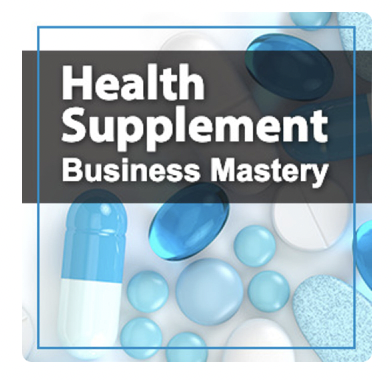
Nearly everybody takes some sort of supplement or other these days. Is it worth it trying to get a slice of the pie this late in the game?
The supplement industry is highly profitable both as a whole and for individual manufacturers and distributors. Valued at well over 37 billion dollars, the industry is growing quickly. Startup costs are moderate, and profit margins are quite high for supplement retailers/sellers.
What makes supplement businesses so profitable? What can people do to make sure they make as much money as possible in this job field? Let’s go over in-depth what to know and remember when it comes to starting a lucrative supplement business.
Is the Supplement Industry Profitable?
The supplement industry has seen a huge amount of growth in recent years, in part due to an increased focus on health after the pandemic and in light of rising healthcare costs.
The U.S. supplement industry is valued at over $37 billion, and the market has grown 1.6% every year since 2017.
There are around 1,400 vitamin and supplement makers in the United States, and the industry employs over 43,000 people.
Looking forward, the industry is expected to grow at a rate of 5% every year all the way through 2028. The outlook for the supplements industry is very positive.
Another good way to judge if the supplement industry is profitable is to go directly to the people involved in the industry and hear firsthand if they judge it as worthwhile. On the public online forum Quora, multiple participants in the supplement industry say that they make around 6-figures while working in jobs related to the supplement industry jobs. Some good examples of different types of supplements that can be sold include vitamins, minerals, herbals, botanicals, sports nutrition, weight management, and specialty supplements.
People on the forum mentioned that a person could sell just one kind of supplement on an online store like Amazon or health websites and make an admirable sum of money each year.
As long as the supplement being sold is popular, there will be a consistent demand for the supplement for many years to come. If Amazon or the website used to sell the supplement has enough positive, 5-star reviews, then the products will often bring in plenty of money.
Although the supplement-selling industry is profitable, anyone involved in it still has to put plenty of effort and hard work into it, just like any other job. People need to work diligently to maintain as many 5-star reviews and ratings as possible.
Is it Profitable to Sell Supplements?

Supplement businesses are relatively cheap to start up, especially when compared with other business ideas, and the supplements business is reportedly worth roughly $25 billion, and it is growing about 10% each year.
Supplemental products can be manufactured cheaply for the cost of a TDP and raw ingredients. Once the right customers are found and marketed to, it is very profitable to sell supplements.
The majority of the costs to start and maintain a supplement company come from paid traffic and marketing your supplements.
77% of Americans consume at least one type of supplement, and when they go to buy them, they tend to spend $96.50 on average. The profit margin for supplement distributors is very high, at 38%.
Many supplement distributors begin online due to the low start-up costs. In addition to the online direct-to-consumer model, though, distributors have the option of providing supplements to shops, online retailers, and even gym stores.
Of course, brick-and-mortar stores are not a great option to sell supplements. Brick-and-mortar sales have been outpaced by online sales in recent years, but continue to grow at their own pace. In fact, Brick-and -mortar sales make up $18 billion out of the $36 billion total supplement market in the United States.
Distributors have a wide variety of options when it comes to selling their wares. Depending on local legislation, people can run small supplement companies from their homes, getting rid of the need to spend money on premises.
The estimated initial investment cost to begin a supplement business in the United States is $7,350-$15,600. Newbies to the supplement business can get started in as few as 3 to 6 months.
Again, the profit potential in this industry is quite high at $60,000 to $160,000 per year. That is to say, based on market estimates, someone with high startup costs and low-profit margins in the supplement industry will still make 4 times what they put in (assuming all goes well).
How to Make a Profit Selling Supplements
Research the Market
Understanding the market demand and your competition is crucial before establishing any kind of business. Discover the types of supplements that are in demand, establish your target market, and conduct research on popular supplements. Find market gaps that you can fill in with one-of-a-kind or specialty products.
Understanding the effects, potential side effects, and other details about the supplements you sell will make you more reputable and bolster your reputation.
Choose and Sell Only Quality Products
When promoting supplements, quality is essential. Choose reliable manufacturers or suppliers who offer superior items and who are secure and efficient. To make sure the products adhere to industry standards, look for certificates like Good Manufacturing Practices (GMP). Ensure that the products you sell meet all legal standards in every market you operate in.
Online Networking
Establish an e-commerce website or utilize popular online marketplaces to sell your products. Invest in professional web design and create a user-friendly interface. Optimize your website for search engines so that potential customers can easily find you. Leverage social media platforms to build a strong online presence and engage with your target audience. When creating content for your brand, create content that your target audience will want to watch, not necessarily what you want them to see.
Provide Excellent Customer Service
Ensure that you provide excellent customer service. Provide accurate product information, respond quickly to queries, and address any problems or complaints in a professional manner. Positive client interactions can result in recurring business and word-of-mouth referrals.
Multimedia Marketing
To connect with your target audience, create a thorough marketing strategy. Use a variety of marketing platforms, including as email campaigns, influencer collaborations, social media advertising, and content marketing. To build your business as a leader in the sector, offer insightful material about health and wellbeing.
Differentiating Your Brand
Given the wide range of supplement brands available, you have to distinguish yourself from your rivals. Create a USP (unique selling proposition) that emphasizes what makes your products stand out. This could include special formulas, natural components, eco-friendly packaging, or individualized customer assistance.
Discover the 3 funnels that can help your health supplement business succeed.

Listen to the Health Supplement Business Mastery Podcast for for dietary supplement entrepreneurs and marketers.



